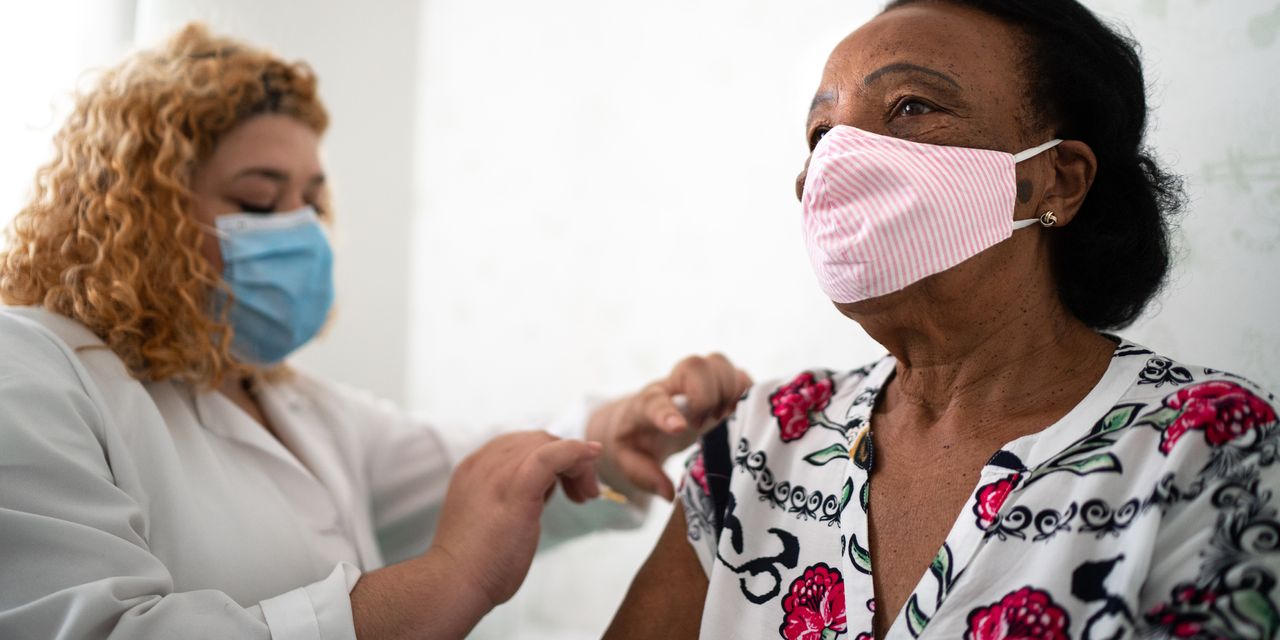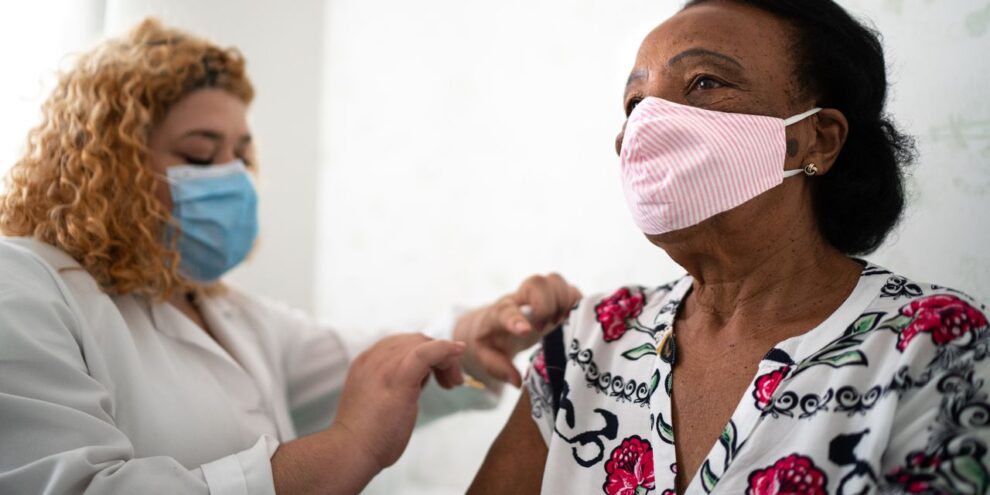
On Tuesday, Feb. 24, the U.S. Food and Drug Administration released the results of its trial of the Johnson & Johnson coronavirus vaccine. The FDA found the vaccine to be safe and effective and it is expected to grant emergency use authorization in the coming days. Maureen Ferran, a virologist at the Rochester Institute of Technology, explains how this new vaccine works and explores the differences between it and the already approved Moderna and Pfizer–BioNTech vaccines.
How does the Johnson & Johnson vaccine work?
The Johnson & Johnson vaccine is what’s called a viral vector vaccine.
To create this vaccine, the Johnson & Johnson team took a harmless adenovirus—the viral vector – and replaced a small piece of its genetic instructions with coronavirus genes for the SARS-CoV-2 spike protein.
After this modified adenovirus is injected into someone’s arm, it enters the person’s cells. The cells then read the genetic instructions needed to make the spike protein and the vaccinated cells make and present the spike protein on their own surface. The person’s immune system then notices these foreign proteins and makes antibodies against them that will protect the person if they are ever exposed to SARS-CoV-2 in the future.
The adenovirus vector vaccine is safe because the adenovirus can’t replicate in human cells or cause disease, and the SARS-CoV-2 spike protein can’t cause COVID–19 without the rest of the coronavirus.
This approach is not new. Johnson & Johnson used a similar method to make its Ebola vaccine, and the AstraZeneca AZN, -1.08% AZN, -0.93% -Oxford COVID-19 vaccine is also an adenovirus viral vector vaccine.
How effective is it?
The FDA’s analysis found that, in the U.S., the Johnson & Johnson COVID-19 vaccine was 72% effective at preventing all COVID-19 and 86% effective at preventing severe cases of the disease. While there is still a chance a vaccinated person could get sick, this suggests they would be much less likely to need hospitalization or to die from COVID-19.
A similar trial in South Africa, where a new, more contagious variant is dominant, produced similar results. Researchers found the Johnson & Johnson vaccine to be slightly less effective at preventing all illness there – 64% overall – but was still 82% effective at preventing severe disease. The FDA report also indicates that the vaccine protects against other variants from Britain and Brazil too.
Read: J&J’s one-shot COVID-19 vaccine nears authorization as FDA has no ‘specific safety concerns’
How is it different from the Moderna and Pfizer vaccines?
The most basic difference is that the Johnson & Johnson vaccine is an adenovirus vector vaccine, while the Moderna MRNA, +4.33% and Pfizer PFE, -0.98% vaccines are both mRNA vaccines. Messenger RNA vaccines use genetic instructions from the coronavirus to tell a person’s cells to make the spike protein, but these don’t use another virus as a vector. There are many practical differences, too.
Both of the mRNA-based vaccines require two shots. The Johnson & Johnson vaccine requires only a single dose. This is key when vaccines are in short supply.
The Johnson & Johnson vaccine can also be stored at much warmer temperatures than the mRNA vaccines. The mRNA vaccines must be shipped and stored at below–freezing or subzero temperatures and require a complicated cold chain to safely distribute them. The Johnson & Johnson vaccine can be stored for at least three months in a regular refrigerator, making it much easier to use and distribute.
Read: Pfizer says FDA eases ultralow temperature requirements for COVID-19 vaccine
As for efficacy, it is difficult to directly compare the Johnson & Johnson vaccine with the mRNA vaccines due to differences in how the clinical trials were designed. While the Moderna and Pfizer vaccines are reported to be approximately 95% effective at preventing illness from COVID–19, the trials were done over the summer and fall of 2020, before newer more contagious variants were circulating widely. The Moderna and Pfizer vaccines might not be as effective against the new variants, and Johnson & Johnson trials were done more recently and take into account the vaccine’s efficacy against these new variants.
Read: Pfizer vaccine can reduce transmission after a single dose, new study finds
Should I choose one type of vaccine over another?
Although the overall efficacy of the Moderna and Pfizer vaccines is higher than the Johnson & Johnson vaccine, you should not wait until you have your choice of vaccine – which is likely a long way off anyway. The Johnson & Johnson vaccine is nearly as good as the mRNA-based vaccines at preventing serious disease, and that’s what really matters.
The Johnson & Johnson vaccine and other viral-vector vaccines like the one from AstraZeneca are particularly important for the global vaccination effort. From a public health perspective, it’s important to have multiple COVID-19 vaccines, and the Johnson & Johnson vaccine is a very welcome addition to the vaccine arsenal. It doesn’t require a freezer, making it much easier to ship and store. It’s a one-shot vaccine, making logistics much easier compared with organizing two doses per person.
As many people as possible need to be vaccinated as quickly as possible to limit the development of new coronavirus variants. Johnson & Johnson is expected to ship out nearly four million doses as soon as the FDA grants emergency use authorization. Having a third authorized vaccine in the U.S. will be a big step toward meeting vaccination demand and stopping this pandemic.
Now read: COVID-19 is on the run — expect the pandemic to be under control by Memorial Day
And: Queen Elizabeth II tells subjects not to be selfish and get a COVID-19 shot
Maureen Ferran is an associate professor of biology at the Rochester Institute of Technology in Rochester, N.Y. This was first published by The Conversation — “How does the Johnson & Johnson vaccine compare to other coronavirus vaccines? 4 questions answered“.











Add Comment